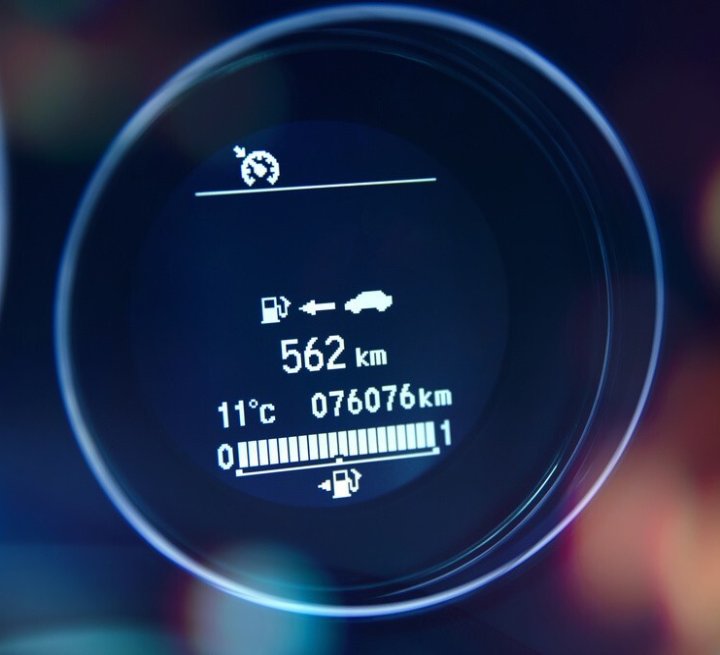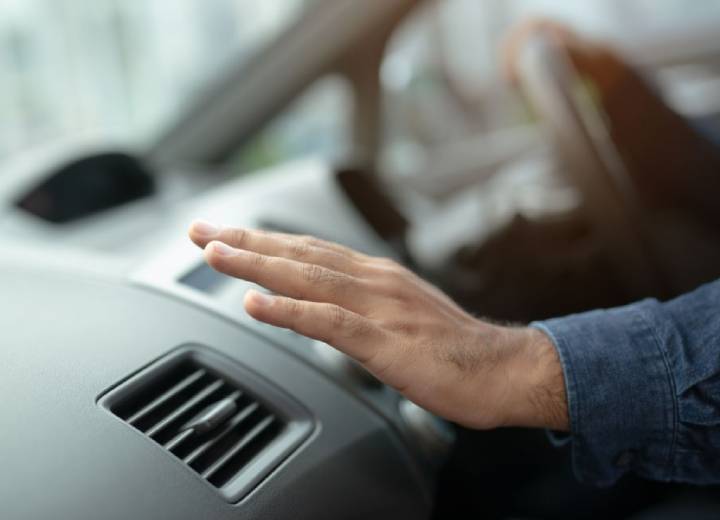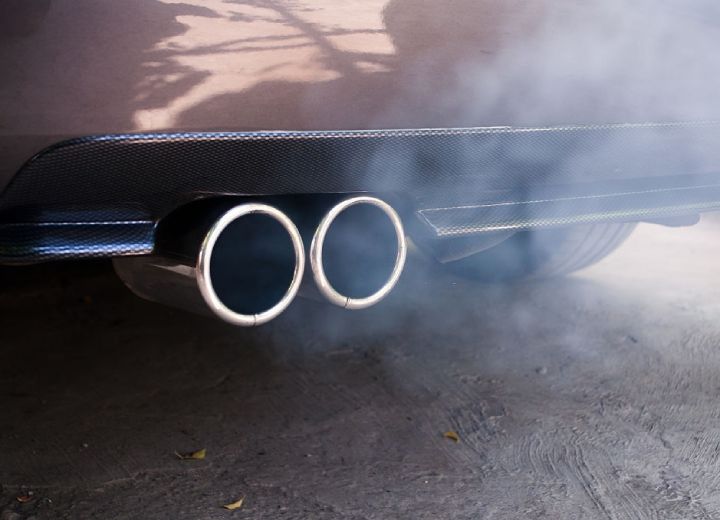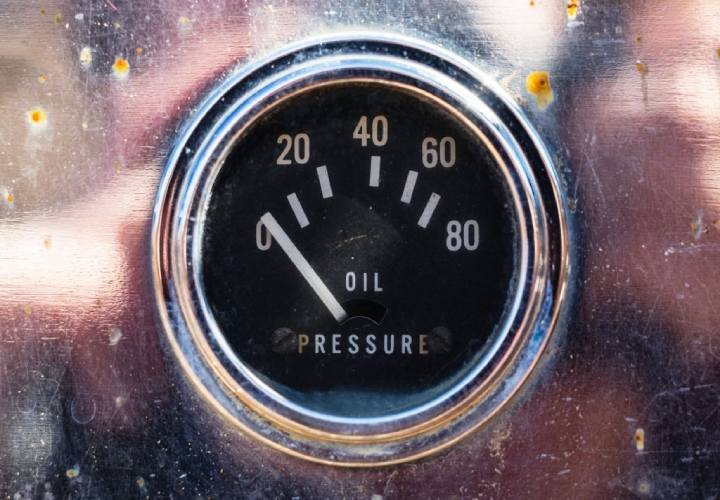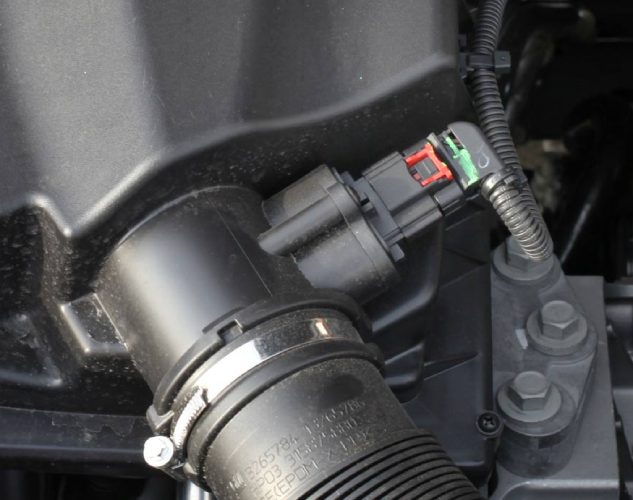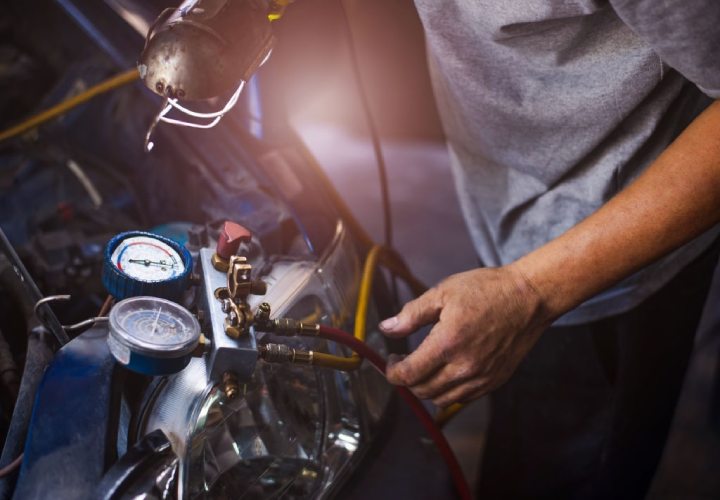Both fans present in the car, the primary cooling fan from the radiator and the secondary cooling fan from the air conditioning system’s condenser, should immediately turn on when AC is switched on.
Turning the radiator fan on is controlled by the rise in coolant temperature.
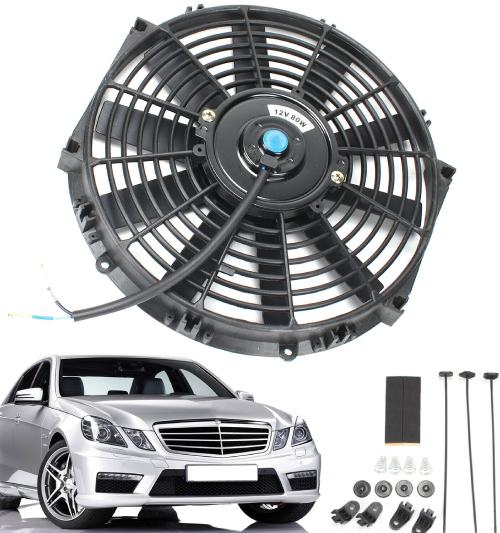
When Should Radiator Fan Come On?
There is coolant running in the engine of every car. The purpose of the coolant is to keep the engine’s temperature optimal and protect it against overheating. Whenever the temperature of the coolant rises above a certain level, the radiator fan will turn on.
In most cars, once the temperature crosses 85 degrees Celsius or 185 degrees Fahrenheit, the radiator fan will start turning.
There is an electric thermostat relay that is responsible for connecting the circuit once this temperature is reached.
In theory, there are two conditions when the coolant temperature surpasses the predefined limit:
1. When AC is turned on
To understand why the radiator fan comes on when AC is turned on, you must understand the basic refrigeration cycle. There are four components to every type of air conditioner.
- Compressor
- Expansion Device
- Evaporator
- Condenser
The basic working is so that refrigerant fluid is highly compressed to a high temperature and pressure in the compressor.
This high-temperature fluid is allowed to expand suddenly through an expansion device. The sudden expansion of hot gases causes a cooling effect.
This expansion process takes place in the evaporator coils.
During which, the normal temperature air is blown over the evaporator coils, due to which its temperature is dropped, and we get cold air as a result.
The refrigerant that has given the cooling effect goes to the condenser. Here gas is converted to the liquid state again, and the cycle continues.
During this cycle, the refrigerant reaches extreme temperature. To ensure the efficiency of the air conditioning, the temperature should be as low as possible.
The coolant and the cooling fan fulfill this. For this reason, the radiator fan comes on when AC is turned on.
Related: Why does my heat only work when driving? Answered
2. When the engine is overheated
Several problems can cause the engine to overheat. A failed water pump, faulty belts & hoses, and a bad thermostat switch are all leading causes of engine overheating.
In any case, there comes extra stress on the coolant. As a result, its temperature rises, and the radiator fan is turned on.
Does Radiator Fan Affect AC?
From a technical point of view, the radiator fan should only affect the working of AC when the car is idling. As explained in the refrigeration cycle, a cross-flow of air is required to ensure the smooth functioning of the air-con system.
Even when the car is running, the radiator fan is turned on when you switch on the AC. It is not to assist the AC, but rather it is due to the default settings of the thermostat relay. It is set to turn on the radiator fan once the temperature of the coolant rises.
What Are the Symptoms of a Faulty Cooling Fan Switch?
Failure of any car part causes inconvenience. But what gets even more annoying than the failure itself are the car parts that give no apparent symptoms before breaking.
The cooling fan switch is not among those. It gives clear warnings and signs when it starts to fail.
The major symptoms of a faulty cooling fan switch are:
- The first and foremost symptom is that your AC will not function properly when the car is not running. AC ducts will blow hot air instead of cold if the cooling fan switch is faulty and the radiator fan is not turning on.
- Intermittent working of the cooling fan is also a possible symptom. It occurs when the cooling fan switch is not working properly. Sometimes it connects the circuit and sometimes it doesn’t.
- Modern-day cars have warning lights that come up on the dashboard. These warning lights appear in case of engine overheating or component failure.
- You would experience that engine is overheating more than usual. Now it can be due to many other reasons as well. But couple this symptom with all the above-mentioned points and you would know that the cooling fan switch is close to failure.
Related: Can I Drive With a Cracked Radiator?
What Causes a Radiator Fan to Not Turn On?
There are three parts to a cooling fan circuit. These include a relay, a temperature sensor, and a fan motor. Failure of the fan motor at any stage is possible because the radiator fan will not turn on.
On the other hand, a malfunctioning temperature sensor can also cause the radiator fan not to turn on.
These are the reasons for the radiator fan not turning on. There is a possibility that your coolant temperature has not reached the upper limit, due to which the radiator fan is not turning on.
There is no need to worry about this scenario.
Related: Can I Drive My Car with A Bad Ac Compressor?
How Can I Test My Radiator Fan?
It is very easy to test which part is keeping the radiator fan from being turned on. You need the following items to conduct this test:
- Safety gear
- Wire clipper
- AVO meter
- Tester
- Screwdriver
Just follow this simple procedure to run a test on the radiator fan:
- Turn on the car and AC so that cut-off temperature is reached, at which relay turns on the fan.
- It will take about 15 minutes at max.
- Once the temperature is reached, with the help of the AVO meter, check the wires that are connecting the fan to the electrical circuit.
- If the AVO meter reads 12V, then the problem is related to hardware and not the electrical system.
- Check for belt wear in visual inspection.
- If that is fine too, then the fan motor has failed. You need to replace it, costing you between $550 to $650.
What Happens When the Radiator Fan Doesn’t Work?
If the radiator fan is not working correctly, it can have severe repercussions for your car’s working. Your comfort is also highly compromised.
If the radiator fan is not working correctly, your AC won’t work either, and it will become impossible to sit in the car on a hot summer day.
Engine overheating is another thing that can happen if the radiator fan is not working. This is a more serious issue, as overheating can lead to more severe problems like a blown gasket or, even worse, a seized engine. Hence, you should not take the failure of the radiator fan lightly.
Sources
Diagnose Engine Cooling Fan Relay Problem
Every since I was a little boy, I can remember spending the afternoons in my dad’s repair shop. I got my first car at 16 and it was the best feeling ever!
I have contributed to various automotive publications but decided it’s finally time to settle for something constant.

